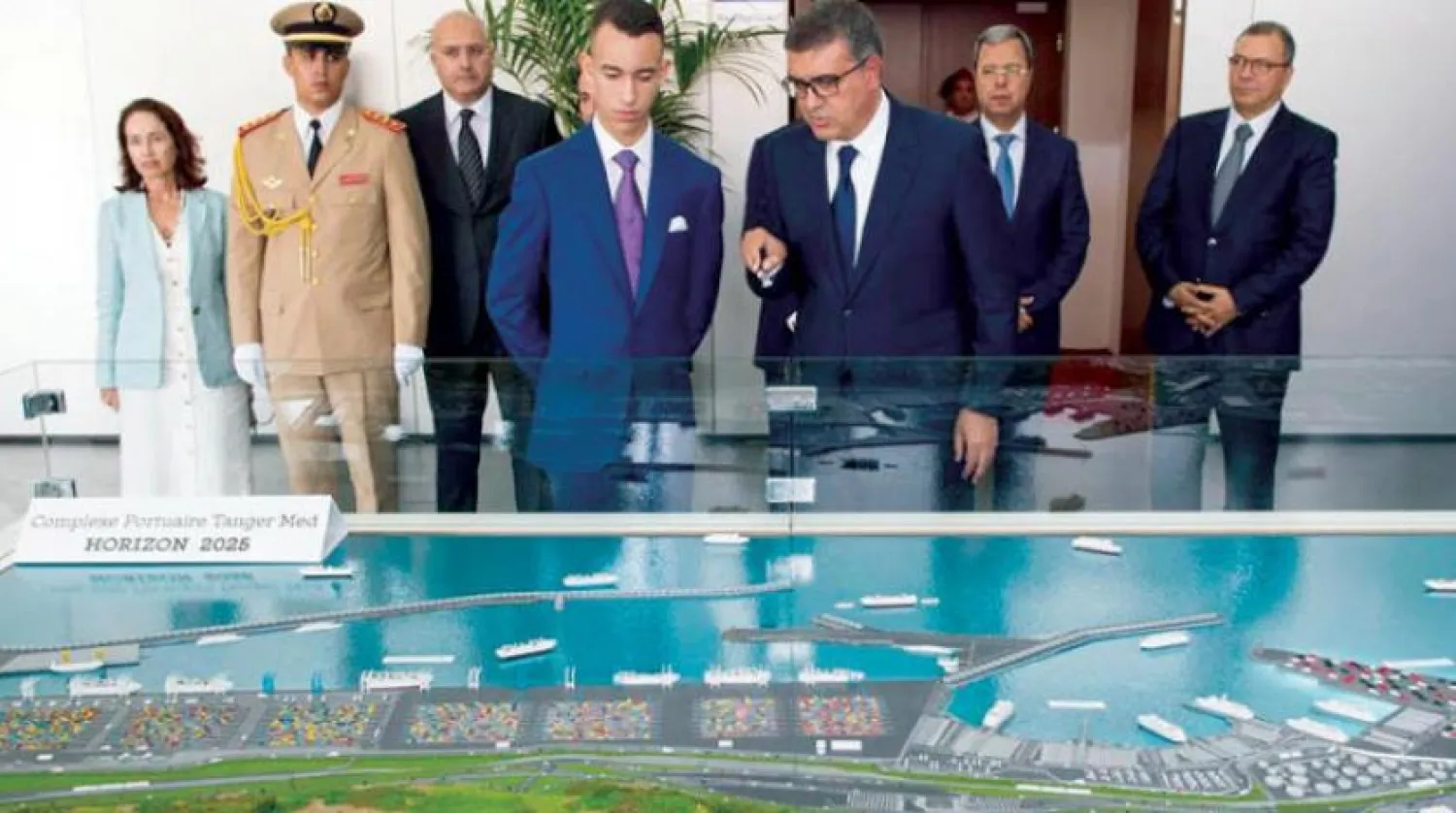Crown Prince of Morocco Moulay Hassan, son of Morocco's King Mohammed VI, inaugurated Tanger-Med 2 of Tangier port, which will enhance the country’s position in the Euro-Mediterranean region.
Tanger-Med 2 now has the largest Mediterranean port capacity and by connecting Morocco to 77 countries and 186 ports, the port contributed to the location of the Kingdom of Morocco on the international maritime scene, announced head of the Tanger Med special agency Fouad Brini.
“Tanger today represents the top port in the Mediterranean in terms of capacity.”
Morocco is now in the 17th place according to the United Nations Conference on Trade and Development (UNCTAD), Brini said, adding that: “That's something to be proud of.”
Brini pointed out that the port provides Morocco with world-class infrastructure in Gibraltar Strait and makes the Kingdom a regional and industrial player of the first level in Africa and the Mediterranean. He added that the visionary decision of the King of Morocco to launch the studies and construction of Tanger-Med 2 enabled Tangier port of tripling its capacity from 3 million to 9 million containers per year.
The Head of the agency added that in 2018, Tanger-Med 1 handled 3.4 million containers, which enabled it to be located as the first port in Africa, ahead of Egypt’s Port Said on the Suez Canal and Durban in South Africa.
Tanger-Med is the first African port to be labeled EcoPort, part of the main environmental initiative which features equipment that respects the environmental standards of the European Maritime Ports Organization.
Brini noted that the momentum of development will continue for a new investment program worth $900 million, adding that this investment program aims at keeping pace with the growth of Moroccan industrial and agricultural exports, through expanding port processing capabilities and creating new facilitation zones.
This dynamism will contribute to improving the logistics competitiveness of the African continent and confirm Morocco’s integration in the world's leading logistics corridors by enabling Tanger-Med to be located within the world's top 20 container ports, explained Brini.
He recalled that 12 years after the actual launch of the project, the innovative model of the Tanger-Med Agency's governance is systematically brought up in the best global practices.
A.P. Moller Maersk CEO Morten Engelstoft said that Tanger-Med is one of the most developed ports within the port network in which the group operates. He added that this port platform is one of the strategic centers within the global network of A.P. Moller Maersk.
Engelstoft noted that Tanger-Med is a leading port with a very advanced technology that offers effective and safe solutions. He praised the extraordinary business climate in Morocco, stressing that Maersk reaffirmed its commitment and trust in country.
Tanger-Med 1 & 2 port director Rachid Houari stated that the port put Morocco in the category of the world's great marine countries.
He also pointed out that Morocco has become an inevitable destination, and Tanger-Med is an indispensable port.
The extension is the result of nine years of work and 1.3 billion euros of public funding along with an equivalent amount pumped in by private investors, explained Houari.









